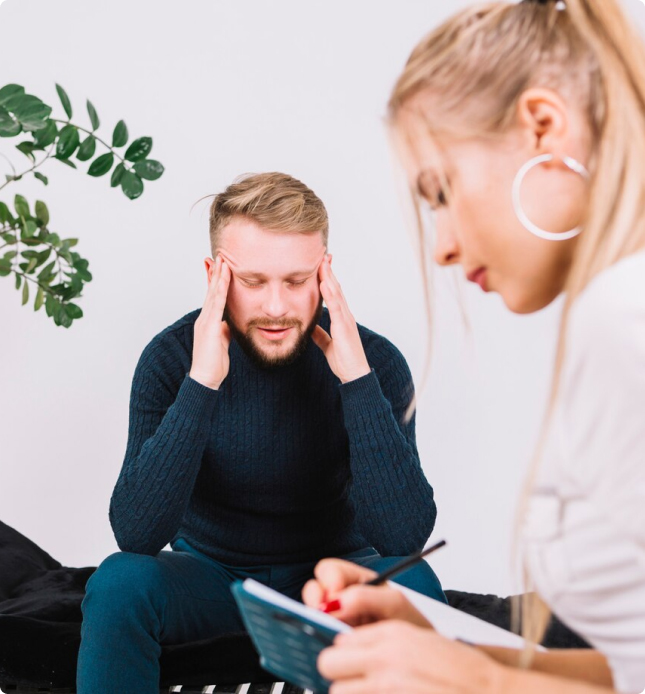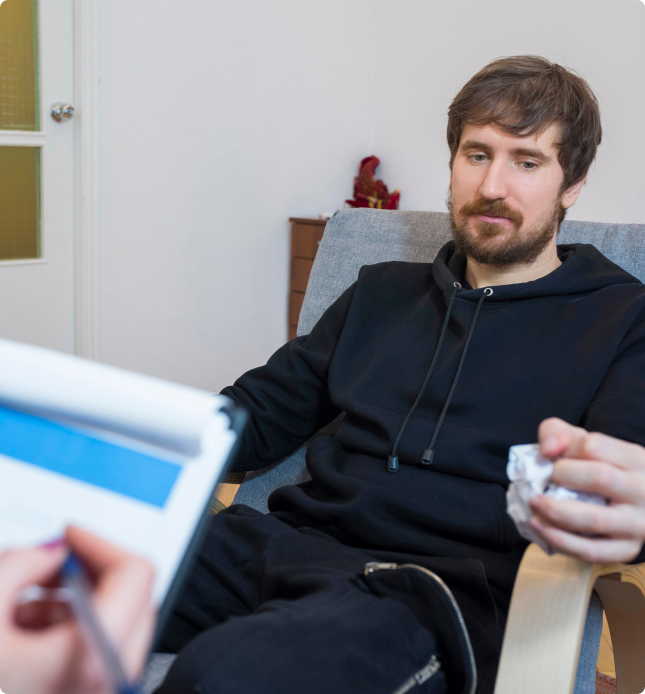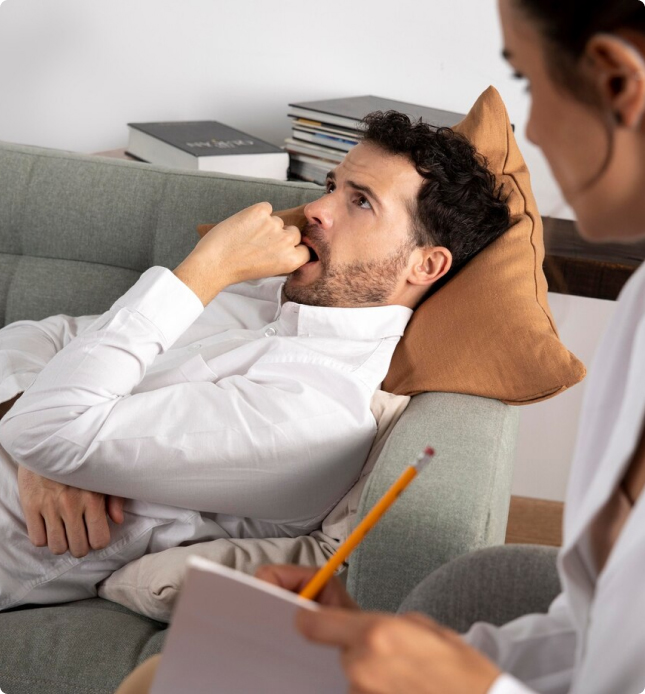MENtalCare – TeleTherapy Services
Suicide & Crisis Hotline: Call or Text 988
Self-Assessments.
Self-Check Centre
A great place to start. Self-assessments are a crucial first step in understanding your current symptoms and experiences. Though brief, these evaluations provide valuable insights into different aspects of your well-being.
Keep in mind that these self-help assessments are meant to inform but NOT diagnose. If your results indicate a potential mental health condition, we encourage you to speak to a licensed clinician to conduct a thorough evaluation.












Have Questions? We have Answers.
Disclaimer: All of our mental health self-assesssments are intended for informational purposes only and are NOT a substitute for professional diagnosis or treatment. The results of these assesssments are not conclusive and should not be used as a basis for making significiant decisions about your mental health. We strongly encourage you to seek guidance from a licensed mental health professional who can provide personalized evaluation and recommendations.
If you’re experiencing changes in mood, behavior, or thinking, or if you’re feeling overwhelmed, anxious, or depressed, taking a self-help test can provide valuable insights into your mental health and help determine if you should seek professional support. If there are no present concerns, you can still take one of our assessments to gauge if you are experiencing symptoms. Our self-help assessments are for everyone!
Our self-help assessments asks only a few questions and provides a result indicating whether your symptoms may be significant enough to warrant concern. It offers a quick insight into your mental well-being. Depending on the assessment, it can be completed quickly, usually within 5 minutes.
Yes, absolutely! Our assessments are built upon rigorous mental health data and research, ensuring accuracy and reliability. Designed with your well-being in mind, these assessments ask clinically relevant questions to provide valuable insights into your mental health.
If your results indicate potential mental health concerns, it’s important to seek professional help. Contact a licensed mental health provider to discuss your results and explore the best course of action for your well-being. Remember, there’s no need to panic or worry because support and treatments are available to help address your concern(s).
No! It’s important to understand that self-help tests are designed for personal introspection and growth. Taking a test on behalf of someone else would not yield accurate results and would disregard their unique perspectives and experiences. Encouraging others to take the assessments themselves and discussing the results together can be a helpful approach.
